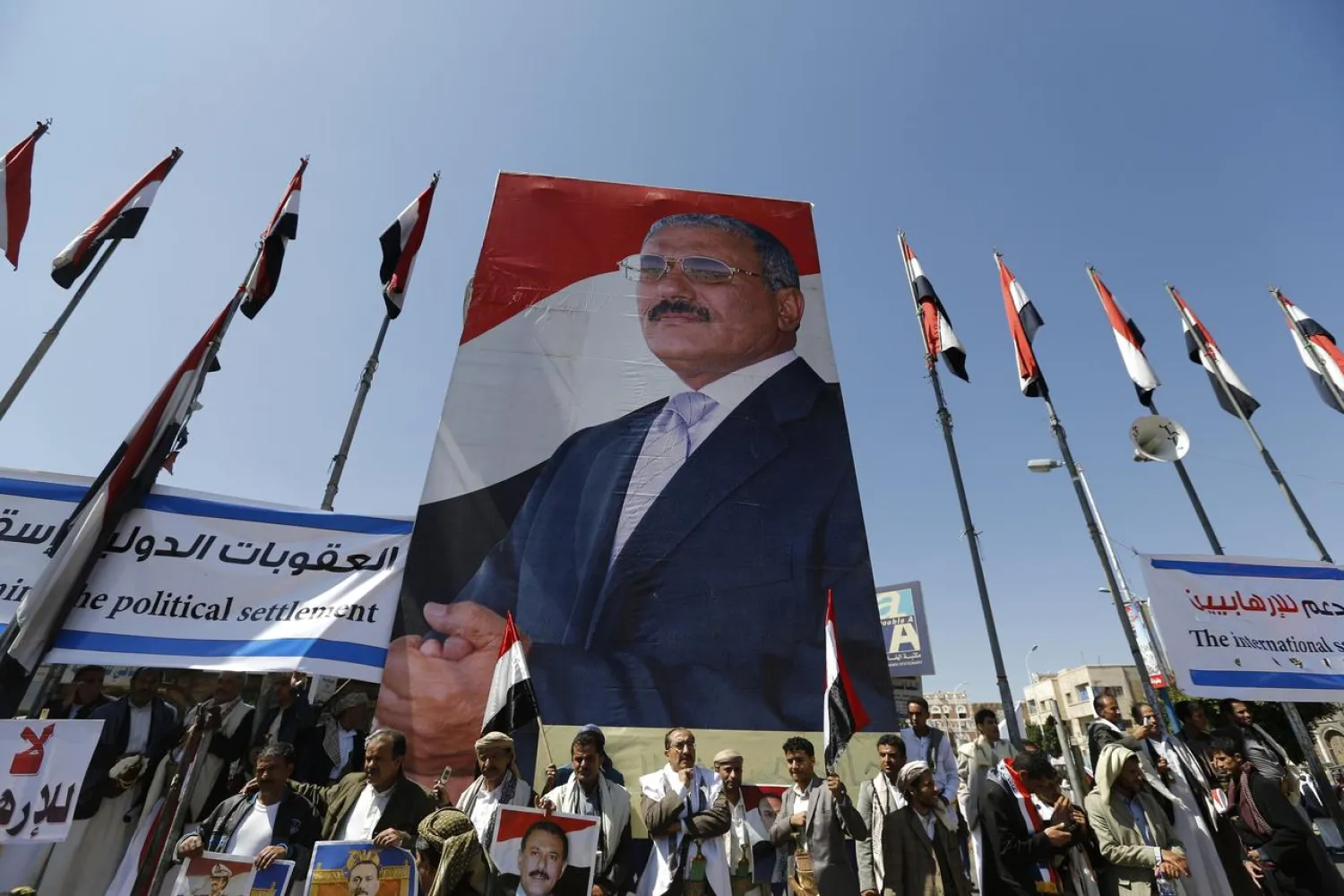The General People’s Congress (GPC) of late former Yemeni President Ali Abdullah Saleh announced on Sunday its official suspension of participation in authorities that are controlled by the Iran-backed Houthi militias in Sanaa.
This is the first rebellion of its kind against the Houthis since Saleh was murdered by them on December 4, 2017.
In a copy of the declaration obtained by Asharq Al-Awsat, the GPC explained that it was suspending its participation after the militias released five suspects linked to the 2011 assassination attempt against Saleh at his presidential compound in Sanaa. The bombing left 14 people dead and 200 wounded, including some of his bodyguards and members of his regime.
GPC leaderships and members told Asharq Al-Awsat that the suspension was a “step in the right direction”, while others doubted that it would really impact the Houthis, which have total control over power.
The Houthis have yet to comment on the development. Some of its supporters, however, expressed their derision over the move on social media.
The suspension took place after the GPC leaderships in Sanaa met in the Houthi-held capital. Sadiq Amin Abou Ras chaired the meeting. He has acted as head of the Sanaa branch after Saleh’s death.
The gatherers expressed their “strong condemnation” of the Houthis’ release of the suspects, noting that the militias’ welcoming of the move is “new evidence of their implication in that terrorist crime, which was condemned by the world and United Nations Security Council.”
The GPC said it was suspending its activity in the political council, parliament, government and Shura council.
GPC member, MP Abdul Rahman Mozab welcomed the move, even if it was “very late.” He told Asharq Al-Awsat that it should have taken place in December, but Houthi terrorism thwarted such a move.
Another leader GPC member, Fahd Taleb al-Sharfi told Asharq Al-Awsat that the release of the suspects exposes the “secret alliance between the Houthis and Muslim Brotherhood.”
“They both use terrorism to eliminate political rivals,” he charged, while calling on the government and Islah party to immediately arrest the suspects.
The Islah party has been accused of affiliation with the Muslim Brotherhood, which has been designated as terrorist by several countries throughout the region. It has repeatedly denied its relations with the group.
GPC activist Abdul Wali al-Mathabi urged the party leaderships outside of Yemen to “seize the opportunity and draw attention to the crime at international forums.” He also ruled out the possibility that the Houthis would seek reprisals to retaliate against the party.
A GPC member in Sanaa told Asharq Al-Awsat that the suspension was not strictly linked to the release of the suspects, but it is a culmination of several Houthi violations against the party.
Speaking on condition of anonymity, he said: “The militias do not believe in political partnership and coexistence because they receive all of their orders from Iran and they are trying to alter Yemen’s identity.”









